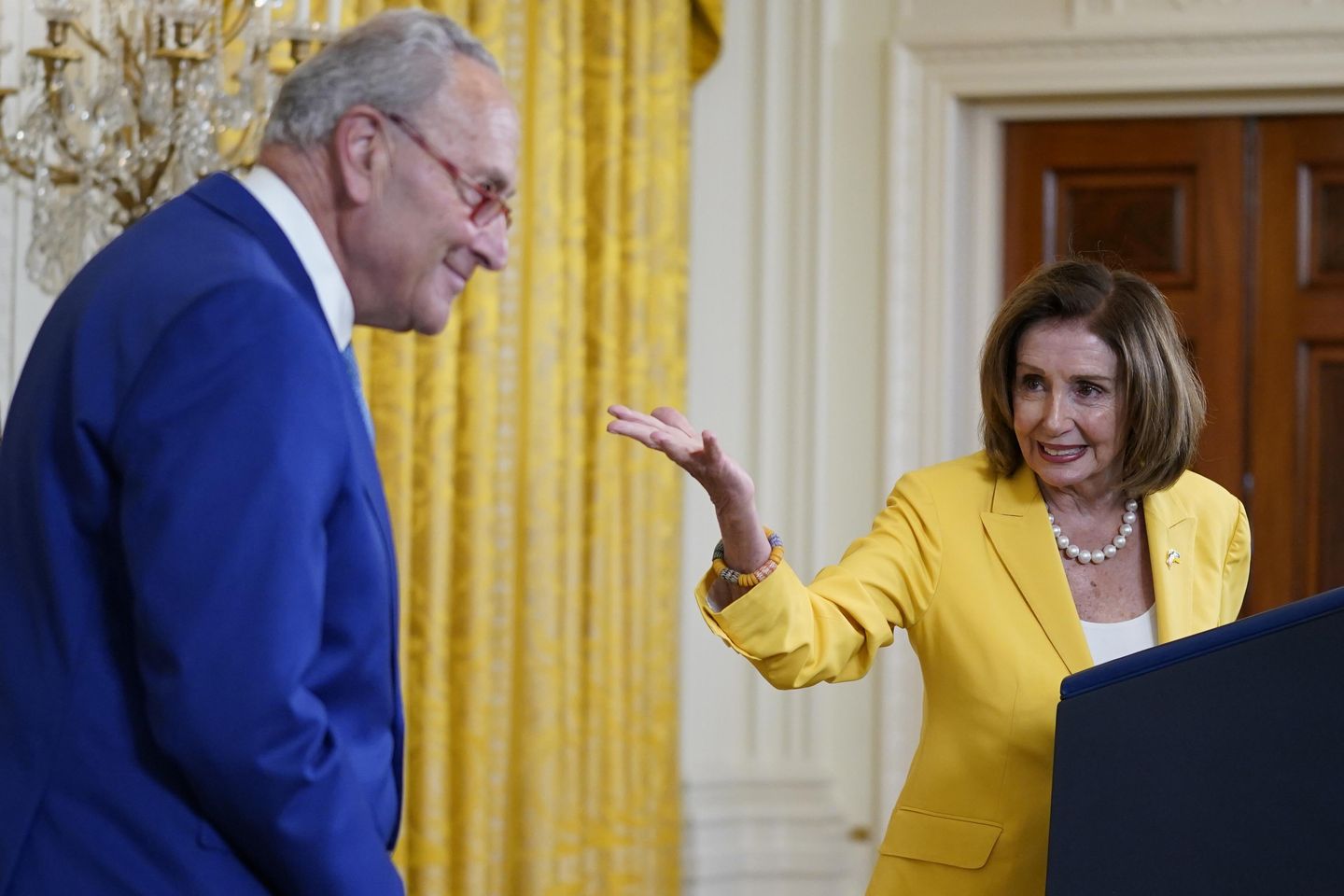Former House speaker Nancy Pelosi praised Senate Majority Leader Charles E. Schumer for his recent criticism of Israeli Prime Minister Benjamin Netanyahu. Schumer had expressed his concerns about Netanyahu’s actions and decisions, particularly regarding Israel’s settlement expansion in the West Bank. Pelosi supported Schumer’s stance, highlighting the importance of holding leaders accountable for their actions and promoting peace in the region. This public display of disagreement within the Democratic Party reflects the ongoing debate over US-Israel relations and the Israeli-Palestinian conflict.
Pelosi’s endorsement of Schumer’s criticism of Netanyahu underscores the growing divide within the Democratic Party over its approach to Israel. While traditionally a strong supporter of Israel, Pelosi’s public support for Schumer’s remarks signals a shift in the party’s stance on Israel’s policies. This shift is reflective of a broader trend within the Democratic Party, where younger, more progressive members are increasingly vocal in their criticism of Israeli actions, particularly regarding human rights violations and the treatment of Palestinians. Pelosi’s support for Schumer’s criticism highlights the diversity of opinions within the party on this issue.
Schumer’s criticism of Netanyahu’s policies, particularly regarding settlement expansion in the West Bank, comes at a time of heightened tensions in the region. The issue of Israeli settlements in the West Bank has long been a point of contention in the Israeli-Palestinian conflict, with many viewing them as an obstacle to peace and a violation of international law. Schumer’s decision to speak out against Netanyahu’s actions reflects a growing concern among Democrats about the impact of Israeli policies on peace efforts in the region. Pelosi’s support for Schumer’s criticism further emphasizes the need for a reevaluation of US support for Israel’s actions in the West Bank.
Pelosi’s praise for Schumer’s criticism of Netanyahu also signals a shift in the Democratic Party’s approach to the Israeli-Palestinian conflict. While the party has traditionally been a staunch supporter of Israel, there is a growing recognition among Democrats of the need to address the root causes of the conflict and advocate for a more balanced approach to the issue. Pelosi’s endorsement of Schumer’s remarks highlights the party’s willingness to engage in a more nuanced discussion of US-Israel relations and the Israeli-Palestinian conflict, moving away from unconditional support for Israel towards a more critical stance on its policies.
Overall, Pelosi’s support for Schumer’s criticism of Netanyahu demonstrates the complexity of the US-Israel relationship and the ongoing debate within the Democratic Party over its approach to Israel. By publicly endorsing Schumer’s remarks, Pelosi is signaling a willingness to engage in a more critical dialogue about Israeli policies and their impact on peace efforts in the region. This shift reflects a broader trend within the party towards a more nuanced and balanced approach to the Israeli-Palestinian conflict, highlighting the diversity of opinions within the Democratic Party on this contentious issue.









